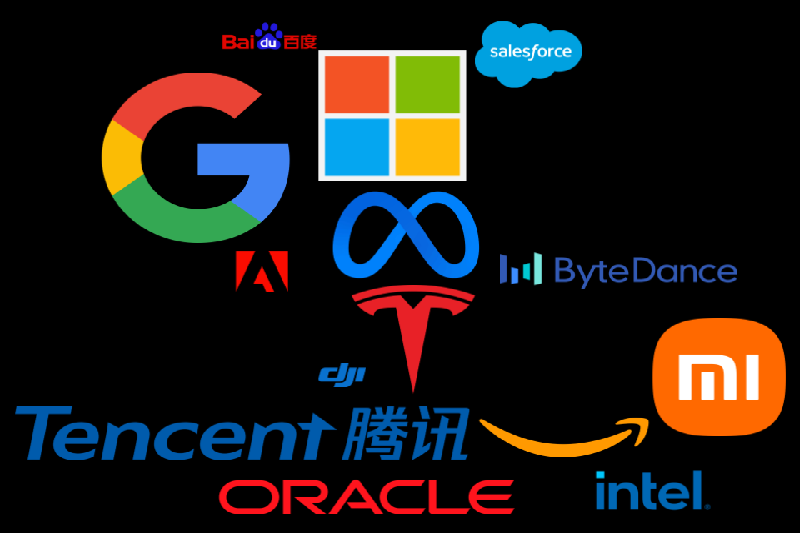The tech sector in the United States has long been hailed as a hotbed of innovation, fueling economic growth and transforming whole industries. Less noticed is the way tech giants have used their market dominance to crush competition. While some argue that consolidation leads to efficiency and increased market power, there is growing evidence that it is stifling innovation, costing jobs, and burdening consumers with higher prices.
Big fish, little fish
Google acquired Waze, a popular crowdsourced navigation app known for its real-time traffic data. Despite initial assurances to users and the startup community that Waze would operate independently, Google gradually integrated Waze’s best features into its own Google Maps, then Google phased out standalone Waze, effectively closing down the once-innovative startup.
This week Google announced it was laying off most of Waze’s workforce.
Facebook acquired Onavo, an Israeli mobile analytics startup that developed a VPN app. Onavo’s technology offered users a way to monitor their mobile data usage and protect their privacy. However, Facebook eventually repurposed Onavo’s technology to collect data on users’ online activities, leading to privacy concerns. In 2019, following backlash and regulatory pressure, Facebook discontinued the Onavo app.
Amazon acquired Quidsi, the parent company of Diapers.com, an online retailer specializing in baby products. Initially, Amazon assured Quidsi’s founders that the acquisition would maintain their autonomy. However, shortly after the acquisition, Amazon significantly lowered prices on diapers and other baby products, engaging in predatory pricing to drive out competition. This ultimately forced Diapers.com to shut down, eliminating a competitor from the market.
Microsoft acquired Sunrise, a popular calendar app known for its intuitive design and functionality across multiple platforms. Following the acquisition, Microsoft incorporated some of Sunrise’s features into its own Outlook app. Ultimately, Microsoft discontinued the standalone Sunrise app, leaving its dedicated user base without their preferred calendar solution.
Stifling Innovation

Consolidation in the tech sector has created a handful of dominant players who wield immense power and market control. As these giants acquire smaller innovative startups, they often integrate their technology and talent into existing platforms, rather than nurturing them as standalone entities. This results in a loss of diversity and competition, hampering the free flow of ideas and the development of groundbreaking technologies.
Startups that once thrived in a vibrant and competitive environment are now deterred from entering markets dominated by behemoths. The lack of competition and the fear of being overshadowed by established giants stifles the entrepreneurial spirit and discourages risk-taking, leading to a dearth of fresh ideas and disruptive innovations.
Costing Jobs

Consolidation often leads to workforce reductions as redundant roles are eliminated to achieve cost savings and streamline operations. As larger companies acquire smaller ones, they absorb their talent pool and consolidate job functions, resulting in layoffs and unemployment. Moreover, with reduced competition, the need for a diverse set of skills diminishes, limiting job opportunities for professionals from different backgrounds and expertise.
This concentration of power also allows tech giants to wield influence over wages and benefits. With fewer options for employment, workers may find themselves accepting lower compensation packages or unfavorable working conditions. This undermines the bargaining power of employees, leading to a decline in job quality and worker satisfaction.
Higher Consumer Prices
As consolidation increases market power in the hands of a few tech giants, it reduces the incentive for companies to compete on price. Without adequate competition, these dominant players can raise prices, confident that consumers have limited alternatives. This results in higher costs for products and services, putting an additional burden on the already strained wallets of consumers.
Furthermore, consolidation allows tech giants to gain control over entire ecosystems. This means they can leverage their dominance to push their own products and services, limiting consumer choice. The lack of diverse options and the ability to choose from a range of competitive offerings often results in limited innovation and lower-quality products.
FTC asleep as the wheel
The issue of negligent antitrust enforcement in the U.S. tech sector cannot be overlooked, particularly with regards to the role of the Federal Trade Commission (FTC). Critics argue that the FTC has failed to effectively address the consolidation problem due to the significant political influence exerted by the tech sector.
Large tech companies have become formidable lobbying forces, employing substantial resources to sway policymakers and shape regulations in their favor. This political clout has created an environment where the FTC may hesitate to take decisive action against tech giants, fearing political backlash or potential legal battles. As a result, the tech sector’s influence hampers the FTC’s ability to rigorously enforce antitrust laws, allowing consolidation to persist unchecked and exacerbating the negative impacts on innovation, job opportunities, and consumer prices.
Addressing the issue would require a concerted effort to ensure the independence and integrity of regulatory bodies, shielding them from undue political influence and allowing them to fulfill their mandate of safeguarding fair competition in the tech sector. So far, DC has shown little interest in doing so.










